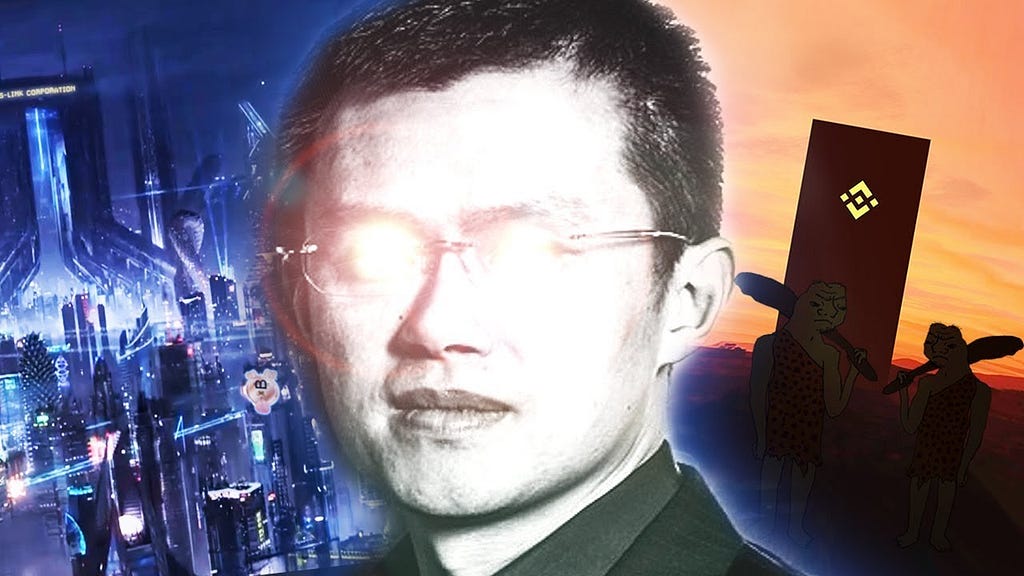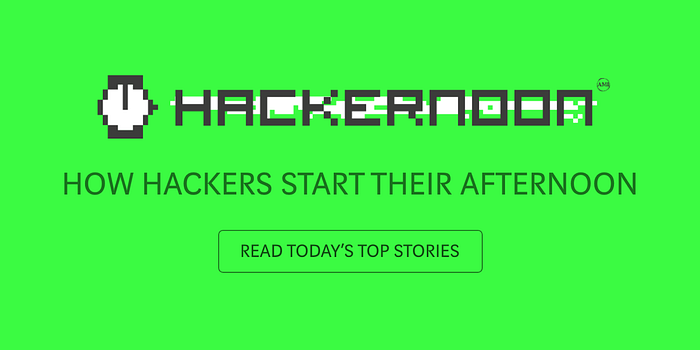Latest news about Bitcoin and all cryptocurrencies. Your daily crypto news habit.

I will just be the one to say what everybody is thinking. Security tokens aren’t going to be the saving grace we all have been waiting for.
Before we dive into the reasons for this, I think it is important to establish some definitions of the various things that people are referring to as “security tokens” as honestly — I think we need different terms.
1 — A Digitized Asset that acts as an immutable bearer instrument (there isn’t much out there like this).
2 — What everybody is calling utility tokens now (almost everything) and then on the other hand saying that they don’t pass the Howey Test — There is much chatter that utility tokens like this are dead, but I don’t think that is the case. Utility tokens that aren’t actually uniquely useful (for example to facilitate payment in an isolated DApp) are dead — but I think the industry is just getting its legs and separating airy projects from substance.
3 — Regulation friendly equity raises that somewhat apply “tokens” as an optical layer in order to attract trend hunting investors.
So these all basically mean different things, and I would like to explore the concept in its purest form that all of us as blockchain idealists and realists can identify.
The idea behind a security token or STO is that we are digitizing assets and putting them into a liquid format that makes them accessible to people and entities that previously could not have had access to them.
A basic example would be if I created say, an ERC-20 contract and issued 100 Unification Equity Tokens (UNDe) thus digitizing the equity for Unification into 100 tokens. Each representing ownership of 1% of the company. How these tokens can be used is a long discussion of possibilities (voting rights, board seats, dividends, etc.), but for now let’s just look at the mechanics.
In a non-security token world, if I wanted to “sell equity” in my company it would be a maze of paperwork and regulations where some could participate and some couldn’t. In the purest STO world, people send ETH to a Smart Contract or via a SAFT and they get UNDe tokens in return. These tokens can theoretically be transferred at will to other parties as well (as long as they are not locked or restricted by some clause as in the proposed ERC-1400/1404 standard). It theoretically doesn't matter who they are as the token ownership in the wallet sees no borders nor regulations.
As a pure social agreement of digitization of “some” asset — it could be considered a beautiful thing. Personally I see the far off utopian ideal where companies/nation-states are governed via the blockchain and each “token” held is a vote on something which is then executed immutably. I like this and it can work. But it is not happening anytime soon (except maybe in made up whitepapers designed to raise funding ;-).
So this works in theory — but when we cross it up with say, SEC Regulations, then we basically have an interesting paradox crossing its swords directly with regulators in a way that “utility tokens” never got close. There are two reasons why.
First, let us say that Joe owns two UNDe tokens. In a pure “blockchain on blockchain” world in which no governments exist, these UNDe would give Joe 2% of the ownership of Unification. His ownership stake would be verified by his private key acknowledged I suppose by the Board of Directors of Unification which would give him the rights and rewards he is entitled to for that ownership. By this definition, the UNDe would be described as a bearer instrument in the same way that in the 17th century, traders would deposit gold in the Bank of England and they would issue a note that states that the bearer of this note is entitled to X amount of Gold. Whoever showed up with the note would be given the gold. Same way that whoever controls the private keys to the UNDe, would be granted the rights and rewards for this.
There are a few problems here. First off this is operating on a black-box trust mechanism — with the “entity” agreeing to issue rights and rewards (in many case dividends) to the holder of the token. This is in the same way that traders of old had to just hope that when they showed up on a Friday, that the Bank of England still would give them the gold that the note said belonged to them. This of course was dependent on the fact that the bank had gold to give. The owner of the bearer instrument has no actual way to know until they try to redeem it and is also dealing with a “centralized authority” who literally could just tell them no and who would they have to turn to? The authorities? Does this sound familiar?
This leads to the glaring elephant in the room when applying this to blockchain; guess what we have now? We have a centralized, black-box entity that does whatever it wants — So why is this on blockchain?
Before we dive more into the inherent problems, there is also the USA centrist problem of bearer instruments for this use case being more or less deemed illegal (any legal eagles in the reading audience may reply with a “not exactly” — however significant consensus currently shows them as illegal).
This means that to comply with anything that has anything to do with the United States and/or SEC — that a company needs to issue a registered security (this is to prevent money laundering and related). A registered security means that the company keeps a centralized ledger of who owns what percentage of the company and transfers of those assets needs to be documented and recorded on the centralized ledger.
The centralized and tracked ledger (actual owners, not the bearer of the instrument) is the master ledger and the “blockchain security token” is some suggestion of a bearer instrument which actually is not redeemable in an immutable fashion.
See the problem forming — if we are following any sort of laws of a current nation-state, we are trying to force blockchain to solve a problem that is not actually a problem.
To give example, let us imagine that Joe has 2 UNDe tokens that are stored on a paper wallet. Jane comes to Joe’s house and puts a gun to Joe’s head and says, give me all your UNDe or else! Joe hands her the paper wallet and Jane runs off and transfers the UNDe to another account.
This sometimes happens with Bitcoin, etc., and the smart criminals know how to tumble their coins to make them untraceable, and the dumb ones get caught when they send to a KYC’d exchange to try to withdraw (the really smart ones would just HODL — LOL).
But it doesn’t change the fact that those Bitcoins are actually gone and will never be recovered unless the holder of the wallet key allows them to be transferred.
In the case above, even if the police arrested Jane for stealing the UNDe — she could refuse to give up the new private key or maybe she already transferred the UNDe away to someone else. These UNDe could maybe be tracked to their new owner — if the market was not liquid enough to tumble coins properly and legal action could be taken against whoever withdrew the dividends. However if we are going by USA law as I understand it, since bearer instruments are actually illegal in this regards, the actual real life ledger would not be on the blockchain. Rather it would be a registered security which indicated that Joe actually owned the UNDe so the issuer (Unification in this case) upon receiving the police report and/or court order would have to somehow void the 2 UNDe that Jane stole and reissue 2 UNDe to Joe since he was the actual registered owner on ledger.
See the problem here?
So if the blockchain here is not immutable, why do we actually need a blockchain? The ETH gods have tried to address this issue by proposing the ERC-1400/1404 token standard which, as far as I understand it, has a backdoor which lets the contract owner reverse transactions given the above scenarios (maybe we can just call it a front door). So it is basically a really cool way to make the blockchain not the blockchain, and indicative of some of the growing pains that EOS has experienced with governance or the DAO circus in the early days of ETH.
The argument I have heard from “industry guys” is that they simply are a “digitized asset” and can theoretically be anything.
But according to the above facts, this digitized asset can’t be any sort of ownership in any sort of legitimate on the books company. So what are these companies actually issuing?
We really aren’t sure.
This brings us to a second glaring hole in the thesis when trying to link up STO’s to the “real world.”
As far as I understand SEC laws, miners can’t be paid for assisting the transfer of assets. There is a whole lot of wrong here because first off, tokens are clearly bearer instruments and not registered securities and secondly (to this point), even if we ignored the first part — it would technically be illegal, per the above, for miners to receive payments for processing the transactions (maybe to actually process them as well — I am not sure — maybe someone can comment who understands the nuance here).
The solution the security token industry has come up with for this, for the ETH standard at least, is to sidestep this by creating a side-chain and process off-chain transfers and then settle on-chain. The problem with these off-chain transfers is they become more or less CENTRALIZED and not immutable.
Transactions are processed off-chain (same as transfers happening inside an exchange) and then at some point sent to the chain to be “rubber stamped” in bulk — which means it is controlled by a single entity which basically means you are dealing with a bank.
Pretty cool huh?
It’s a great business model and all and I am sure it will be successful but what we have is a system that requires TRUST (opposite of why we are all in blockchain in the first place).
So where does this leave us? I am not sure exactly. The word “security token” is a loaded word for sure and has been finagled to mean a few different things.
If you want a really nice report on all the “facts” laid out neatly you should read this article. However, that article describes the reality of security tokens as envisioned by companies such as StartEngine. As far as I understand it, this described reality is basically an equity raise with looser standards by following some new and favorable regulations, but since “tokens are hot” we will just call them tokens.
As far as I am concerned, this model is great — but it is not what most people are talking about as there is little to do on-chain with anything here.
Other people are very firebrand saying EVERYTHING is a security token. They will say ETH is one as well. I am not enough of a legal eagle to argue this one way or another, but I think that Mr. CZ of Binance gave an interesting perspective when he was recently interviewed on Laura Shin’s Unchained Podcast.
For those that have not had a chance to listen it went something like this:
Laura: BNB is a security.
CZ: No it’s not.
Laura: But everybody says it’s a security.
CZ: But I never said it, so its not.
Laura: But everybody in the USA agrees with me.
CZ: USA is not the center of the world and I don’t go to conferences there so its ok, can we talk about something else now.
For those of you that are not familiar with the standard argument of $BNB being a security token — Pundits will argue that since a portion of the $BNB collected by Binance for Tx fees is burned, that could maybe sorta represent some sort of dividend. I don’t know and I don’t care — as far as I am concerned my definition of a security token is exactly this and nothing I am seeing out there is meeting this:
A token that represents a fractional portion of ownership of some digital asset as an immutable bearer instrument that can be traded in a trustless manner.
I still don’t see it and I’m not sure that this really will exist in the immediate future until we can have autonomous entities free of government oversight that also operate in a trustless manner.
I am sure BTC maximalists will say, bro it’s here already, because they say everything leads back to BTC; and some ETH peoples will say that ETH is this. But I think that it is neither, because BTC doesn’t give you ownership over anything except that BTC. If we wanted to go down that train of thinking then we would say that miners are actually the owners of the network because they are the ones that have the final say. So if BTC was a security token in this regard, holding it would provide a fraction of ownership over the entities that operate the mining which is not the case. (Even though programmers propose the software upgrades/forks — it is the miners who have the final say so we can define them as the owners of the network.)
So where does this leave us? Well bringing it back to the original point of the article — this is how I think it is going to happen.
A — Utility Tokens (yes, the ones that some people say don’t pass the Howey test) will continue to grow and thrive in a similar way that we have seen. What is changing is as the industry grows, real tech-based useful projects will thrive and we will see less and less obvious cash-grabs with no substance.
B — Walled gardens such as StartEngine and Polymath will create gray-area bubble/playgrounds for issuance and in some cases trading of what will be called “Security Tokens.”
There will be profit to be had and innovation — however just as with the “AppCoins” on ETH in 2017/18 there will be much shaking out of the opportunities that present legitimate long term security investment and those looking for a quick shake. Those following things like Reg D or Reg A+ will obviously have locks on their ability to liquidate which will give a new feel and direction to the investments.
The clear advantage of platforms such as this is that they give easier access to varied capital, however the reality is that what the entire “industry” is excited about is not STO’s governed by protective SEC regulations — but rather Part II of the wild-west of the ICO craze (now STO). However the reality is that by very nature this cannot create the same short term speculative bubble so it will be a completely different beast driven by different investing mechanics and returns.
C — The “Utopian Ideal” of a security token being a pure bearer instrument will continue to be explored and one day perhaps we can have companies and eventually nation-states purely governed in an immutable fashion by on-chain voting. I like this and will dream towards it, but it is a little ways in the future.
Do your own research, I am not an investment adviser nor a lawyer — just some person who wants to see the industry move forward in the most lucid and efficient manner as possible.
— NJ
You can follow @neyma on twitter.
The Jury is still out on the realities of STOs. Here is why: was originally published in Hacker Noon on Medium, where people are continuing the conversation by highlighting and responding to this story.
Disclaimer
The views and opinions expressed in this article are solely those of the authors and do not reflect the views of Bitcoin Insider. Every investment and trading move involves risk - this is especially true for cryptocurrencies given their volatility. We strongly advise our readers to conduct their own research when making a decision.



